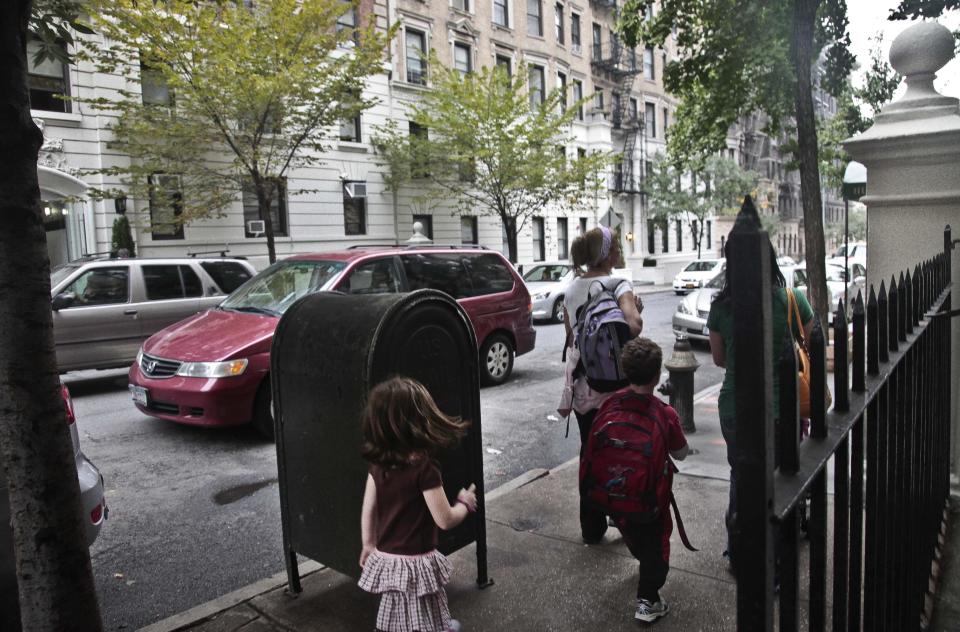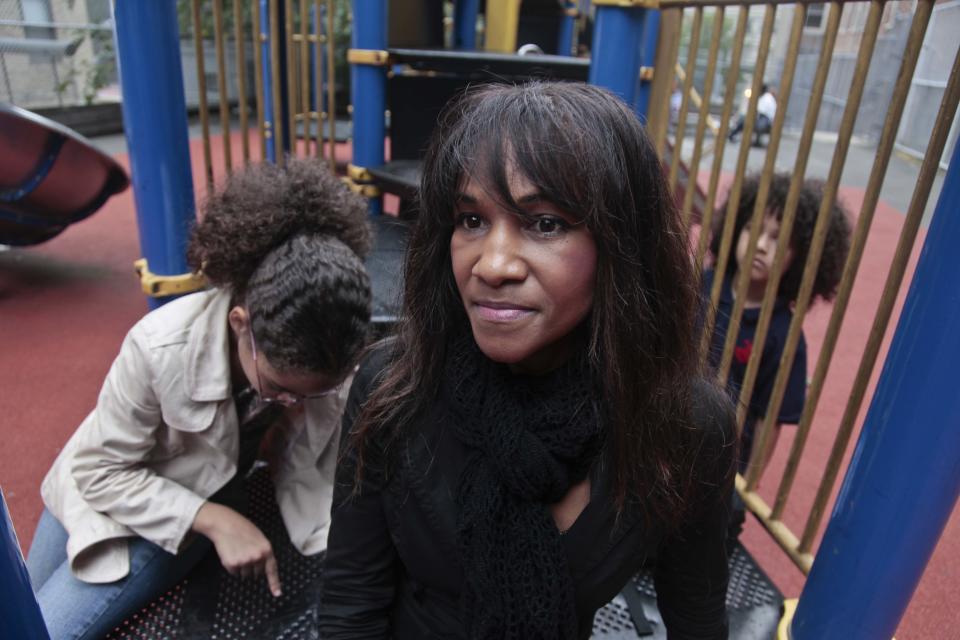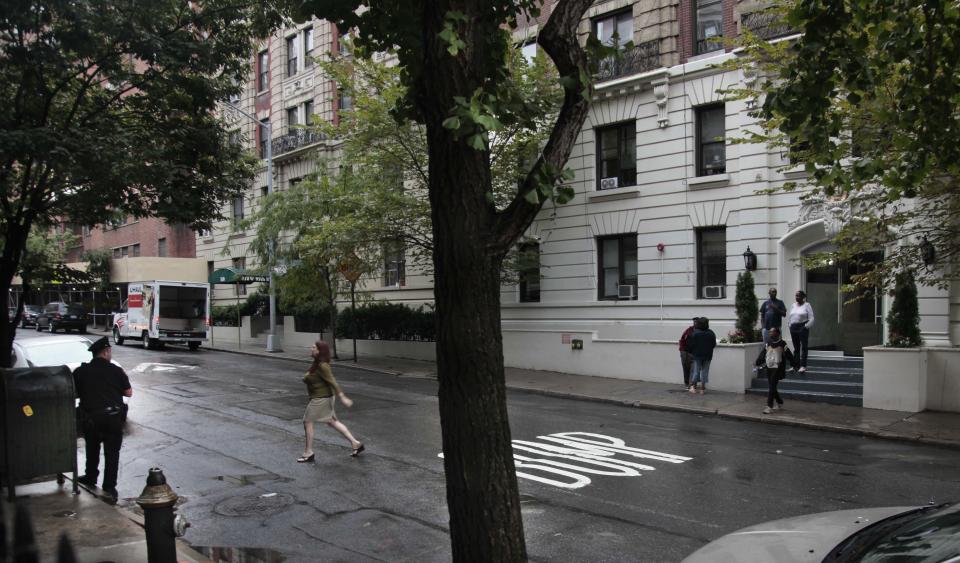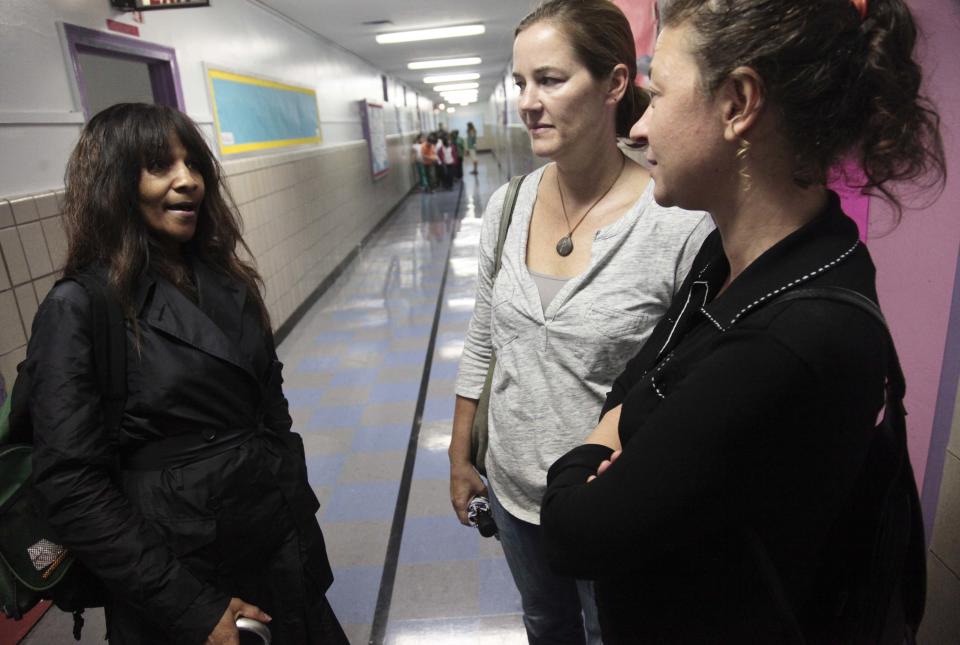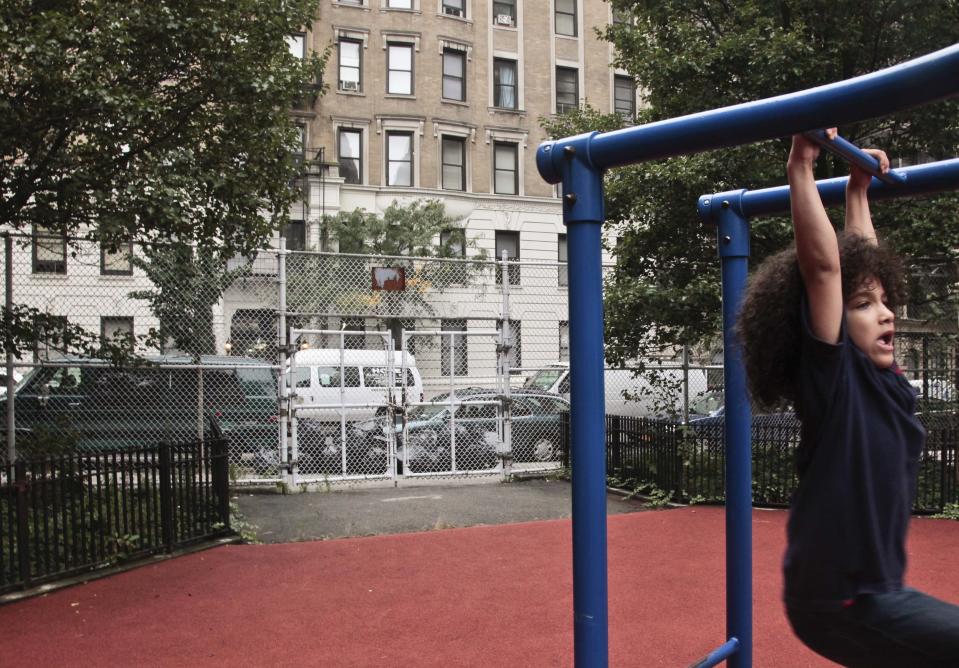NYC homeless boom puts shelters in lap of wealthy
NEW YORK (AP) — With a grand entryway of ornate white stonework, the elegant building seems to blend right into this Manhattan neighborhood of multimillion-dollar brownstones. It's the crowd of people who loiter on the stoop at all hours — under the constant eye of a surveillance camera — that gives it away as a homeless shelter.
Faced with unprecedented overcrowding in New York City's homeless shelters, Mayor Michael Bloomberg has cut through the bureaucracy to open up new shelters across the city, pushing some into wealthy areas where residents fear their new neighbors will bring in crime and drugs.
"It sort of felt almost like a bomb landing," said Gwynne Rivers, a mother of three who lives near a new shelter for homeless adults on the city's Upper West Side. "We just have lots of concerns about safety. And no one really seemed to care about what we thought."
Bloomberg has opened 10 new homeless shelters in recent months in response to the escalating crisis. At last count, more than 46,000 people sought shelter every night in New York, the highest number ever recorded. A recent census report found the city harbors a disproportionate 14 percent of the nation's homeless, with Los Angeles a distant second at 3 percent.
The crisis stems from a lack of affordable housing and the city's ever-growing gap between the rich and the poor, one of the widest in the U.S. and comparable to that found in sub-Saharan Africa.
Unlike in other cities, New York is required by law to provide shelter to every person who seeks it. As the crisis escalates, the city has used its power of emergency authority to create shelters as quickly as possible, bypassing the typical community approval process. And that has created turmoil in neighborhoods like the Upper West Side, where a shelter opened in August among apartments occupied by the wealthiest 1 percent of Americans.
Further complicating matters is the fact that the shelter is right across the street from P.S. 75, an elementary school which also has a playground.
"There definitely seem to be more people hanging around the street corners, at the subway stops, panhandling," said Jen Zunt, a mother of a fifth-grader at P.S. 75. "There's not enough supervision. And these are going to be people who have mental health issues, possibly."
Anxious parents say they've seen homeless men urinating in doorways and loitering near the school. Many mothers have stopped letting their children walk home alone. The parent-teacher association is working with local police to increase security on the street, which is a pedestrian corridor to Riverside Park's soccer fields and playgrounds.
"We all have kids walking to the park to play soccer," Zunt said. "I have a 14-year-old daughter who goes on her own to school and goes to chorus. And, you know, that's really scary."
The question of where new homeless shelters ought to be placed throughout the city's five boroughs has always been a hot-button issue among New Yorkers. And Bloomberg's mini-shelter boom is increasingly bringing the controversy to the doorstep of traditionally wealthy neighborhoods where shelters aren't as prevalent — and where residents are much more vocal in airing their grievances.
A shelter that opened last year in the heart of trendy Chelsea has drawn complaints about mentally ill homeless people defecating and masturbating on the street. In gentrifying Greenpoint, an increasingly hipster-heavy Brooklyn neighborhood, a new shelter for homeless men was fought tooth and nail by residents before it opened in August.
Bloomberg says the shelter population is exploding at least partly because living conditions there have improved. City officials say people from all over the country are flooding the shelters.
"We have made our shelter system so much better that, unfortunately, when people are in it — or fortunately, depending on what your objective is — it is a much more pleasurable experience than they ever had before," Bloomberg told reporters in August.
But on 95th street, at least, shelter residents have complaints of their own. They say some apartments are infested with bedbugs, roaches and mice. They say people knock on doors at night looking for drugs. There are screaming matches and regular visits from the police to break up altercations.
Upper West Siders say they were blindsided by the suddenness of the shelter's opening. Elected officials and angry residents voiced their frustrations at community board meetings and city council hearings scheduled just a few weeks before the shelter opened in August.
The mayor is embroiled in a bitter political debate over his refusal to provide rental subsidies to shelter occupants to help them get out of the system. Last year, the city ended the only remaining rental subsidy program after the state cut its portion of the funding.
In a break from previous administrations, Bloomberg stopped putting homeless families at the top of the colossal waiting lists for public housing and federal rent subsidies.
"It's just once you're in the system, it's a struggle to get back on your feet," said Shawn Joell, a 49-year-old homeless, unemployed Army veteran who lives in the 95th street shelter. "A lot of people are in dire need of housing and help."
The city's Department of Homeless Services initially agreed to speak with The Associated Press for this story and allow a reporter to interview people inside the shelter. But after learning that the AP had interviewed homeless residents that weren't hand-picked by the city, the department abruptly canceled an interview with the commissioner and refused to answer any questions.
The city has said employment is the solution to getting people out of the shelter and back into their own apartments. But with unemployment hovering at 9.9 percent, higher than the rest of the state and the nation, shelter residents say it's not that simple.
After walking around the Upper West Side with his resume in hand, Abraham Sepulveda, 47, recently landed a job at a local supermarket about a month ago. He's been homeless ever since he lost his apartment in the Bronx last year when the rent got too high.
The job makes him feel hopeful. But he's struggling to save up enough money because he's constantly eating out: The shelter doesn't have any cooking facilities.
"It's like treading water. I just keep getting pulled under, and I'm not seeing the top anymore," he said. "I just keep going down and down and down."
